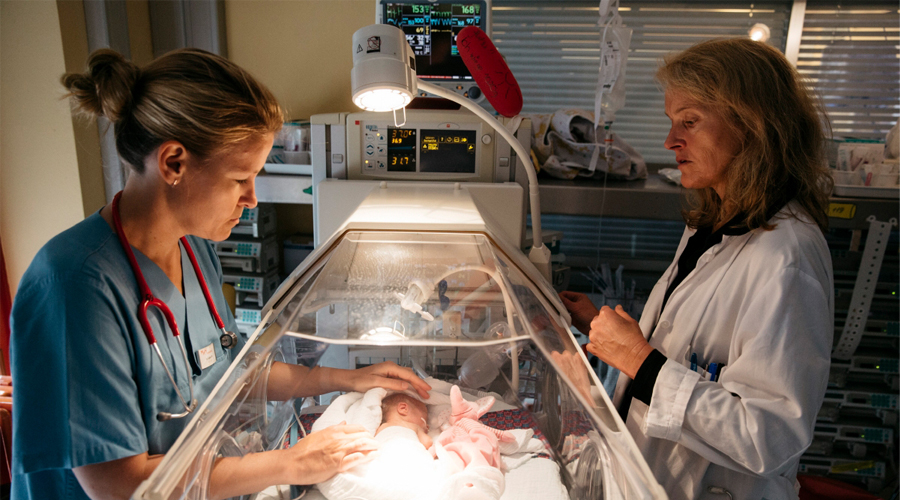RESIST team found out: Alarmins positively influence the development of the intestinal flora and the immune system after birth. Food supplements could prevent severe infections in newborns and long-term obesity.
Breast milk stimulates the child’s immune system and strengthens the intestinal flora. This is well known. But why is that so and what are the underlying molecular mechanisms? And why can’t bottled baby milk do that? A team of the Cluster of Excellence RESIST has now discovered that this happens through alarmins. “Alarmins are the gold of breast milk. These proteins prevent disturbances in the intestinal colonisation, which can lead to life-threatening blood sepsis and intestinal inflammation”, says team leader Professor Dr. Dorothee Viemann from the Clinic for Paediatric Pneumology, Allergology and Neonatology at Hannover Medical School (MHH). The results were published in the high-ranking scientific journal Gastroenterology. The first authors are Maike Willers, MHH, and Dr. Thomas Ulas, University of Bonn.
After birth, the intestinal immune system – the intestinal flora and mucosa – largely evolves through interactions with bacteria from the environment: This creates a high bacterial diversity that is maintained throughout life and protects against many diseases. “At the same time, alarmins control this adaptation process,” says Professor Viemann. Her research has shown that alarmins are formed by the breast milk, but are also developed in the child’s intestines. The contractions are also responsible for this: Babies born by cesarean section have fewer alarmins than those born vaginally. Furthermore, premature babies produce fewer alarmins by themselves in comparison to mature babies. This can be the reason why people often suffer from chronic inflammatory diseases. For this research work, which was supported by the VolkswagenStiftung within the framework of “Offen – Für Außergewöhnliches” and by the Cluster of Excellence RESIST, the team measured the alarmin concentration in stool samples in children during the first year of life and investigated its effects on the development of the intestinal flora and mucosa.
“If newborns do not produce enough alarmins or receive them through breast milk, a dietary supplement containing these proteins could support the development of newborns. It could also prevent numerous long-term diseases associated with intestinal colonisation disorders, for example chronic intestinal inflammation and obesity,” said Professor Viemann. Her statements are based, amongst other things, on the fact that the single administration of alarmins in the mouse model could protect against poor intestinal colonisation and the associated diseases. The RESIST researchers now intend to carry out further preclinical and later clinical work based on their results.
The original publication “S100A8 and S100A9 are Important for Postnatal Development of Gut Microbiota and Immune System in Mice and Infants” can be found on the Internet under the link https://doi.org/10.1053/j.gastro.2020.08.019
The photo shows: Professor Dr. Dorothee Viemann (right) and Dr. Sabine Pirr with a premature baby in the intensive care unit for premature and newborn babies at the Hannover Medical School (MHH). The photo was taken before the corona pandemic. © Sven Döring for VolkswagenStiftung

